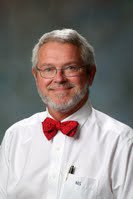The Fool and Experience
There are two kinds of people in the world: those who like aphorisms and those who don’t. In case you missed it, the “there-are-two-kinds” introduction is a sort of prequel to aphorism! With this in mind, you intuitively know that I like them! Our own Benjamin Franklin continues to this very day to be the national voice of quotable, common sense. He was not always original, but he did find clever words that were memorable.
“A good conscience is a continual Christmas.” “Early to bed and early to rise makes a man healthy, wealthy, and wise.” These are two of seemingly endless bits of advice that are part of his remarkable legacy. Recently I was introduced to one I had never heard: “A fool learns from his mistakes; a wise man learns from the mistakes of others.”
A quick internet search reveals that a number of famous persons, including Ben, are credited with this dictum. Several authors cite Otto von Bismarck, despite the fact that he was uniting Germany about a hundred years after Franklin helped with our independence. But let that pass. The truth is, I care less about the speaker of the aphorism than the thought behind it. Like most, and with a little bit of thought, one can argue both sides of the issue. [And before anyone argues with me, it turns out that Franklin’s actual words were not so dire! He admits that both one’s own experience as well as the experience of others can be valuable.]
It is a fruitful exercise to enter into thoughtful dialog with the idea of learning and experience. Is it possible to learn how to swim by reading a book? Is it possible to learn to read a book by listening to a lecture on the art of reading? Ultimately, and as usual, there is a movement along the continuum of this dichotomy. Perhaps the most fruitful way to consider this topic is by asking yourself how you learned a certain skill. Was there a teacher involved?
Some argue that the hot stove is the best teacher. With this perspective one might conclude that experience is not only the best teacher, but the only teacher! On the other hand there are many of us who have learned to obey the speed limit with having never received a speeding ticket! OK, not many. Some.
One of the many topics that teachers must absorb at a deep level is that of “learning styles.” The idea here is that students differing learning styles that fall into relatively amorphous categories. Aside from dramatic physical anomalies, there is no such thing as a strictly visual or aural or kinesthetic learner. There are dominant characteristics that always blend with other styles. And just like our continuum with truth in aphorisms, the best teachers seek to meet their students on this “sliding scale” of effective teaching and learning. The bottom line here is that when I consider my own means of learning, I am more sensitive to how my students learn. And it’s a wonderful conversation to have with a class!
Besides, there are two kinds of people in the world: those who think there are two kinds of people in the world and those who don’t.










